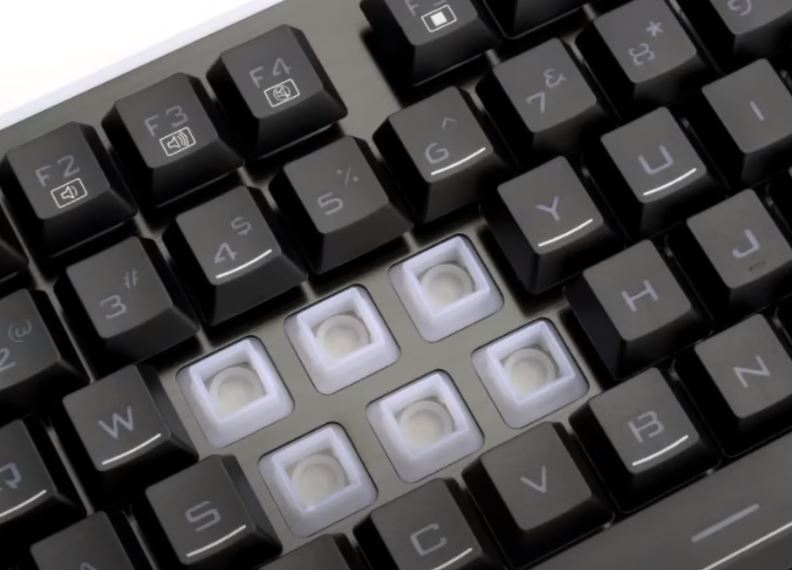In the world of PC gaming and productivity, keyboards play a crucial role. The three primary types of keyboards—mechanical, membrane, and optical—each offer unique advantages and disadvantages. This article explores these keyboard types in detail, helping users make informed decisions based on their specific needs.

1. Overview of Keyboard Types
The three main types of keyboards are:
- Mechanical Keyboards
- Membrane Keyboards
- Optical Keyboards
Each type differs in terms of construction, performance, and user experience. Understanding these differences is essential for choosing the right keyboard for individual preferences and requirements.
2. Pricing Comparison
Pricing is often a deciding factor when selecting a keyboard. Below is a comparative chart of the average costs associated with each type:
| Keyboard Type | Average Price | Price Range |
|---|---|---|
| Membrane | Less than $10 | $5 – $20 |
| Mechanical | Starting at $50 | $50 – $300+ |
| Optical | Starting at $100 | $100 – $250+ |
Membrane keyboards are the most affordable option, making them accessible for budget-conscious consumers. Mechanical keyboards, while more expensive, offer enhanced durability and performance. Optical keyboards generally sit at the highest price point due to their advanced technology.
3. Feel and Feedback
The tactile experience of using a keyboard greatly impacts user satisfaction. Here's how each type stacks up:
- Membrane Keyboards: These keyboards often feel mushy due to their rubber dome switches, which can lead to a less satisfying typing experience.
- Mechanical Keyboards: Known for their tactile feedback, mechanical keyboards provide a distinct feel, allowing users to register key presses with precision.
- Optical Keyboards: Similar to mechanical keyboards in feel, optical keyboards utilize light to detect key presses, resulting in a fast and responsive experience.
Note: The feel of a keyboard is subjective. Some users prefer the softer touch of membrane keyboards, while others prefer the pronounced feedback of mechanical or optical keyboards.
4. Sound Levels
Sound can be an important factor, especially in shared workspaces. Here's a brief overview of the sound profiles:
- Membrane Keyboards: Typically quiet, making them suitable for office environments.
- Mechanical Keyboards: Often louder due to the distinct click of the switches; this can be either a benefit or a drawback depending on the user’s preference.
- Optical Keyboards: Generally quieter than mechanical keyboards but can vary based on the specific design.
5. Durability and Longevity
Durability is a critical consideration for any keyboard purchase. The following points summarize the expected longevity of each type:
- Membrane Keyboards: Typically last around 5 million keystrokes. However, they lack repairability, meaning once they start to wear, they are often discarded.
- Mechanical Keyboards: Known for their durability, they can last a decade or more with proper maintenance. Individual components can be replaced, extending their lifespan.
- Optical Keyboards: While they offer durability comparable to mechanical keyboards, customization and repair options are limited.
6. Customization and Precision
Customization options vary widely among keyboard types:
- Membrane Keyboards: Limited customization options.
- Mechanical Keyboards: Highly customizable, allowing users to change keycaps, switches, and even backlighting.
- Optical Keyboards: Fewer customization options compared to mechanical keyboards, often due to the proprietary nature of parts.
In terms of precision, optical keyboards excel, utilizing light to detect key presses almost instantaneously. Mechanical keyboards follow closely behind, while membrane keyboards lag due to their reliance on rubber components that may wear over time.
7. Which Keyboard is Right for You?
Ultimately, the choice between mechanical, membrane, and optical keyboards depends on individual needs:
- For Casual Users: Membrane keyboards are cost-effective and sufficient for general typing.
- For Gamers and Typing Enthusiasts: Mechanical keyboards offer superior performance, customization, and durability.
- For Competitive Gamers: Optical keyboards provide the fastest response times but come at a premium price.
Understanding the nuances of each keyboard type allows users to select the best option for their specific needs, ensuring a more enjoyable and efficient typing experience.
